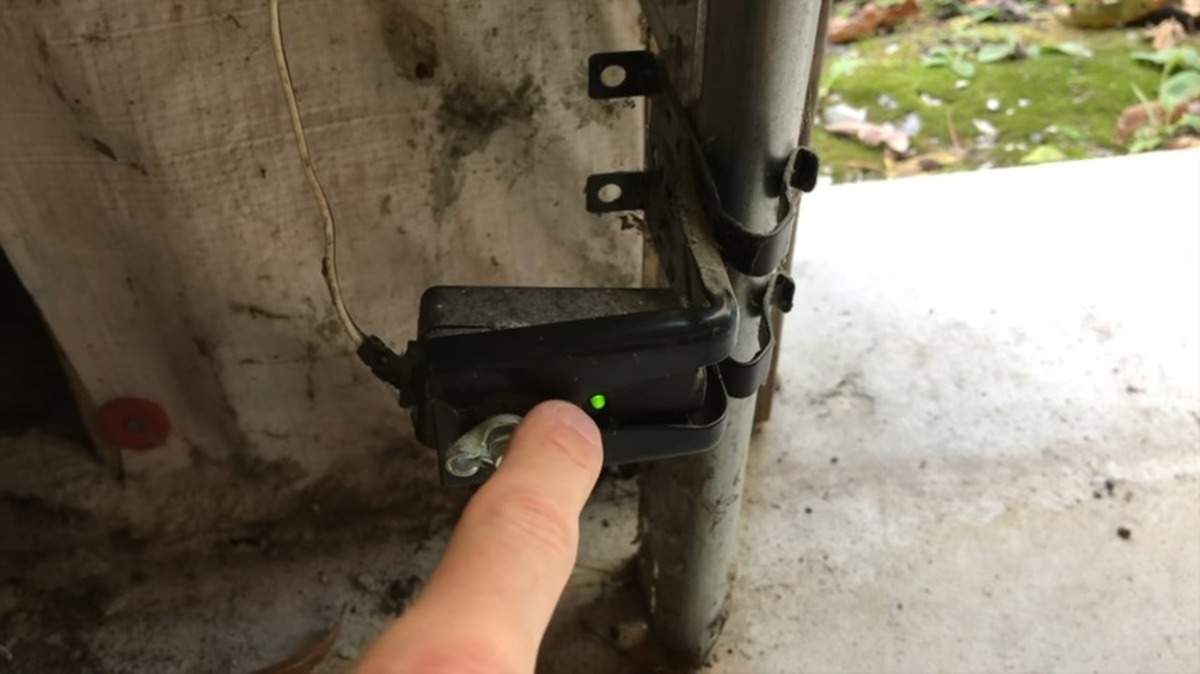Affiliate Disclosure: We may earn money or products from the companies mentioned in this post.
The electric motor then engages a track-and-pulley system that opens or closes the garage door. It also features a safety system that prevents the garage door from closing if there’s an object beneath it and prevents accidents caused by automatic garage doors. The automatic garage door sensors are of great value as they allow convenient access to your garage space.
Your garage door sensors can be affected by sunlight. It is one of the most important elements to watch out for, as the rays of the sun focused on the sensors interfere with the connections of both sensors.
Garage door sensors serve different purposes: some are installed to prevent accidents from occurring, some monitor motion and carbon dioxide activity in your garage, and some prevent the door from closing on objects.
How Do Garage Door Sensors Work?
The sensors on a garage door come in pairs, one for each side of the garage. The sensor has two important elements: the photo eye and the line of sight.
1. The photo-eye
Each infrared sensor has an eye and is placed about 2–5 inches apart on both sides of the garage to face each other.
When you press the remote, each of the eyes must be installed properly such that they’re able to see through each other to send a signal for the door to open or close. The photo-eye prevents the garage door from closing on an existing object.
2. The light of sight
The garage door sensors create a line of sight between both sensors using infrared technology. If the line of sight is disrupted, the door tends to reverse and reopen.
How Does Sunlight Affect My Garage Door Sensors?
Your garage door sensors use infrared light to connect with each other, and since the sun gives off stronger infrared light than the garage door sensors, it overpowers the receiving sensor and causes a disconnection, which obstructs the garage door from closing. Here are some ways sunlight affects your garage door sensors:
1. Light Interference
The infrared sensor system is effective and efficient, but when sunlight shines on your garage sensors, it gives off a strong infrared light that overwhelms the infrared light of your sensors.
Sunlight contains all types of light that have more energy than infrared light, disrupting the connection and signal flow between both sensors.
2. Heat Effects
The convex lenses of your garage door sensors tend to focus the sunlight on the electronic components in the sensor system. When the sun shines constantly on your garage door sensors, it causes warping or damage. If your garage door sensors are exposed to the sun for a long time, it causes the system to overheat and stop working. An overheated garage door sensor will not function properly, and it is likely to get damaged permanently if the sunlight is focused on the system.
3. Other Effects
There are other things that affect your garage door sensors and prevent them from functioning. They include dust, dirt, and cobwebs. There are cases where the cobweb or dirt catches the sunlight and focuses it toward your sensors.
When your garage door sensors are not well taken care of, they malfunction not just from the effect of sunlight but also from improper care for them.
How To Protect Your Garage Door Sensors From Sunlight?
Is your garage door sensor malfunctioning as a result of sunlight? When sunlight is focused on your garage door sensors, it overwhelms the light beam. Your garage door tends to open but won’t close unless the wall button is held down. It is best to protect your garage door sensors from sunlight by utilizing the following methods:
1. Switching sides
This method works best for automatic garage door sensors but doesn’t work perfectly for exterior remote or pressure sensors. Because one of the sensors transmits while the other receives, switching sides is the simplest and most effective way to eliminate sunlight interference and protect your garage door from sunlight. This will help to move them away from the rays of light.
2. Move the Sensors
Placing the sensors slightly into the garage helps to protect them from sunlight. It is also considered an easy solution to reduce interference.
Get an accurate sense of where the sun shines most during the day and move your sensors away from that direction.
3. Construct a Shade Box
This is an effective solution to secure your garage door sensors. Construct a customized shade box using cardboard or light wood. Then ensure to adjust the box dimensions so it doesn’t disturb the movement of the garage door.
4. Purchase Sun Shields
You can purchase a sunshade in your preferred design, color, or size to suit all types of garages. These shades are affordable and easy to install. They also allow for long-lasting garage door sensors.
How To Detect When My Garage Door Sensors Are Faulty?
To test the functionality of your garage door sensors, you will need a common object, a cardboard box. Place the 6-inch-tall cardboard box in the line of the sensors while you try to close the garage door. If the door reverses itself, it means it sensed an obstruction. Then, your garage door is functioning properly.
If both sensors have green lights and suddenly there is a red light, it means it is faulty. However, some have both green and red lights from their manufacturing; the green light shows that the units are powered up while the red shows no obstruction. If both lights are green, the same light will function. If both lights glow steadily on your garage door sensors, it means they’re functioning.
However, if the green light refuses to illuminate and keeps flashing, then it means that the sensors are faulty. If the LED is not flashing properly, then it is possible that a wire is open or shorted. This can be fixed by replacing the wire connected to your garage door sensors. – If the LED still doesn’t glow, then replace your garage door sensors.
How Do I Reset My Garage Door Sensors?
This is easy and simple. Here is how to reset your sensors: Turn your garage door sensors on. Then, check for a circle on the back of the sensors with the tag “reset.”
Press the button down by inserting a paperclip or thin wire. Once you press, you feel it “click.” After that, reconnect the network.
What Is the Lifespan of a Garage Door Sensor?
Only sensors that are properly maintained will last a long time. If you do not clean them regularly and frequently tighten their screws, they tend to wear out and suffer damage quickly.
Repairing garage doors is inevitable, but taking your time to ensure that your garage door sensors are positioned away from sunlight will allow you to have lasting sensors.
What Happens If My Garage Door Sensors Get Wet?
When there is moisture around your garage door sensors, they keep malfunctioning until they get dry. It is best not to leave your garage door open during rainy seasons, or to spray the sensors with water.
Will My Garage Door Sensors Wear Out Quickly?
Yes, it is possible for your garage door sensors to wear out quickly. This is called premature wear. When your garage door sensor works more than it is expected to, there is a decrease in its life span.
Also, the wrong installation of your garage door sensors can allow the sun to focus more on the sensors. When your sensors are exposed to direct sunlight, it weakens the sensor system, causing them to wear out quickly. In such cases, it can only be fixed by replacing worn-out sensors with new ones.
Conclusion
Garage doors are quite heavy and will close with a lot of force, but with garage door sensors, they tend to move slowly. Garage door sensors provide safety and prevent accidents. Garage door sensors are resilient and are not easily affected by weather elements like wind or rain since they’re inside the garage, but if the doors are left open during harsh weather for a long time, your garage door sensors become misted or fogged.
However, when they’re exposed to sunlight, they get affected and malfunction. It is possible for your garage door sensors to wear out quickly, but you can protect them against sunlight using a cardboard box cover, a shade box, a sun shade, or a shield. Ensure that your garage door sensors are kept in sun-free locations.


